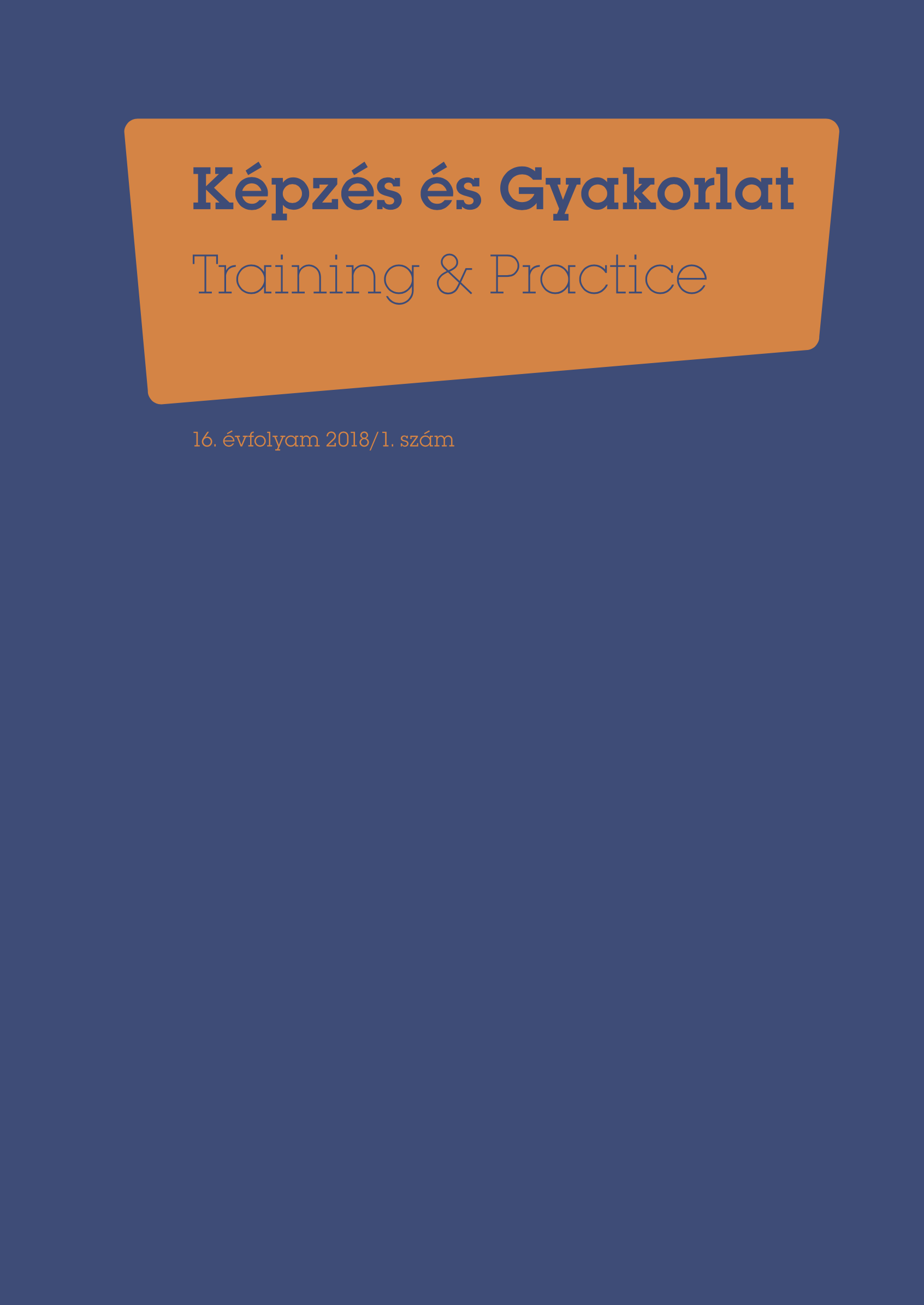Changes in the field of the validation of learning outcomes acquired in non-formal learning context in europe between 2014 and 2016
DOI:
https://doi.org/10.17165/TP.2018.1.4Abstract
2018 is very important for EU Member States because the European Council appointed it in the Council Recommendation of 2012 as the deadline for developing national validation systems. The EU helps the Member States in different ways. Therefore CEDEFOP regularly publishes the European Inventory on Validation of Non-formal and Informal learning documents (2005, 2007, 2010, 2014 and 2017) which contain the European validation practices and information so that the countries can solve the emerging difficulties and weaknesses. Our research was based on these publications. Our aim was to get to know and compare the developments and the changes of validation in each country between 2014 and 2016. Where is the development of the validation systems heading? What is the situation like one year before the deadline? We have got an overall picture of the changes regarding the situation, the participants and methods of validation during our research. The issue is crucial because Hungary also undertook to develop its national validation system by 2018.
References
Bjornavold, J. (2000) (Szerk.). Making learning visible – Identification, assessment and recognition of non-formal learning in Europe. Thessaloniki: Cedefop.
Derényi, A. – Tót, É. (2011). Validáció. A hozott tudás elismerése a felsőoktatásban. Budapest: Oktatáskutató és Fejlesztő Intézet.
Derényi, A. – Milotay, N. – Tót, É.– Török, B. (2007): A nem formális és informális tanulás elismerése Magyarországon. Egy OECD-projekt tanulságai. Budapest: Oktatási és Kulturális Minisztérium.
Európai Tanács (2008). A Tanács ajánlása az egész életen át tartó tanulás Európai Képesítési Keretrendszerének létrehozásáról [online] https://ec.europa.eu/ploteus/sites/eac-eqf/files/journal_hu.pdf [2017.június 6.]
European Commission (2017). European inventory on validation of non-formal and informal learning – 2016 update 32. p [online] https://www.cedefop.europa.eu/files/executive_summary_-_validation_inventory_2016_0.pdf [2017.június 6.]
European Commission (2014). European inventory on validation of non-formal and informal learning 2014 [online] https://cumulus.cedefop.europa.eu/files/vetelib/2014/87250.pdf [2017.június 6.]
Európai Tanács (2012). A Tanács ajánlása a nem formális és az informális tanulás eredményeinek érvényesítéséről. [online] http://eur-lex.europa.eu/legal-content/HU/TXT/HTML/?uri=CELEX:32012H1222%2801%29&from=HU [2016.október 25.]
Farkas, É. (2015). A nem formális környezetben szerzett tanulási eredmények hitelesítése [online] http://www.irisro.org/pedagogia2015januar/71FarkasEva.pdf [2016.november 10.]
Farkas, É. (2014). A rejtett tudás. A nem formális környezetben szerzett tanulási eredmények hitelesítése. Szeged: SZTE JGYPK FI.
Kraiciné Sz. M. (2010). Validáció: az életen át tartó tanulás egyik pillére [online] forrás [2016. november 6.]
Magyar Köztársaság Kormánya (2014). Az egész életen át tartó tanulás szakpolitikájának keretstratégiája a 2014/2020 közötti időszakra. Budapest: Emberi Erőforrások Minisztérium – Nemzetgazdasági Minisztérium.
Móré, M. (2012). Munkahelyi tanulás és motiváció. In: Láczay M. ‒ Bocsi V. (Szerk.): Multikulturális Műhelytanulmányok II. (pp. 19‒27). Hajdúböszörmény: DEGYFK.
Tót, É. (2009). A validáció fogalmának értelmezési lehetőségei, rokon fogalmai a hazai és nemzetközi gyakorlatban, a validáció lehetséges kutatási irányai [online] http://ofi.hu/sites/default/files/ofipast/2010/09/tot_eva_a_validaciorol.pdf [2017.június 6.]
A 2013. évi LXXVII. törvény a felnőttképzésről [online] https://net.jogtar.hu/jr/gen/hjegy_doc.cgi?docid=A1300077.TV [2017. június 6.]
Downloads
Published
Issue
Section
License
Copyright (c) 2018 Kovács Anett Jolán PhD hallgató Szegedi Tudományegyetem Neveléstudományi Doktori Iskola

This work is licensed under a Creative Commons Attribution-NonCommercial-NoDerivatives 4.0 International License.












